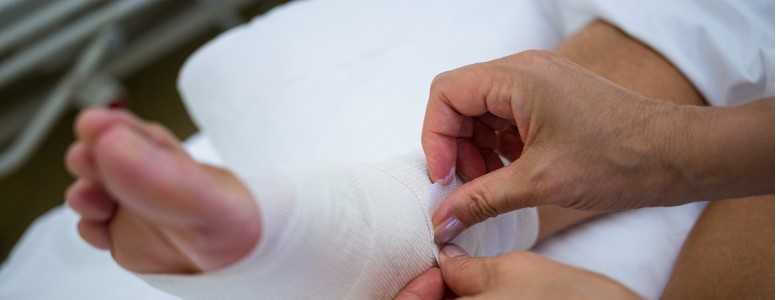A bandage that could speed up the healing process of foot sores among people with diabetes has been developed.
The bandage device, created by researchers at Northwestern University in Illinois, uses the body’s own healing ability without the use of drugs or other pharmaceutical products.
When tested, the treatment was found to heal diabetic wounds 33% faster when compared with regular bandages.
Study author Professor Guillermo Ameer said: “The novelty is that we identified a segment of a protein in skin that is important to wound healing, made the segment and incorporated it into an antioxidant molecule that self-aggregates at body temperature to create a scaffold that facilitates the body’s ability to regenerate tissue at the wound site.
“With this newer approach, we’re not releasing drugs or outside factors to accelerate healing. And it works very well.”
The bandage is applied in a liquid form to the wound and as it reaches body temperature solidifies into a gel which means it embraces the exact shape of the injury. Saline is required to remove the bandage without it pulling at the skin.
“Wounds have irregular shapes and depths. Our liquid can fill any shape and then stay in place. Other bandages are mostly based on collagen films or sponges that can move around and shift away from the wound site,” added Prof Ameer.
Although this pioneering technology can be used for any wound, the research team focused their efforts on helping people with diabetes who are at higher risk of foot wounds which can be difficult to treat.
Most people with diabetes will have at least one foot ulcer at some point in their life. If treated quickly by a foot specialist, a foot ulcer can usually heal. If left untreated, it can lead to infection or even amputation.
More research is set to be carried out on the bandage in a bid to gain official approval from the US Food and Drug Administration (FDA).
The findings have been published in the Proceedings of the National Academy of Sciences.
What's new on the forum? ⭐️
Get our free newsletters
Stay up to date with the latest news, research and breakthroughs.








